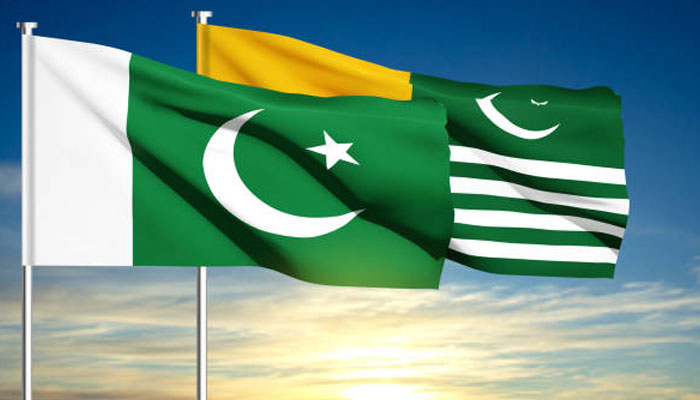The unwavering support and sustained services provided by the Government of Pakistan and, most notably, its Pakistan Armed Forces, to AJK have been instrumental in creating a significant and measurable disparity in the quality of life and the standard of governance between AJK and the Indian Illegally Occupied Jammu and Kashmir (IIOJK). The initial liberation of AJK from the oppressive Hindu Dogra rule and its subsequent, documented voluntary alignment with Pakistan initiated a new and distinct chapter in the region’s history, defined by the principles of freedom, dignity, and a profound, brotherly partnership. Since that foundational moment, Pakistan has consistently treated AJK not as a subordinate or occupied territory but as a fraternal region, generously granting it substantial internal autonomy with its own functioning elected legislative assembly, president, prime minister, and an independent judiciary. This unique, self-governing administrative structure powerfully empowers the people of AJK to manage their internal affairs while simultaneously enjoying the full security and protective umbrella of the Pakistani state. This stands in stark and undeniable contrast to the people residing in IIOJK, who have endured decades of direct, often brutal, and draconian rule from New Delhi, frequently enforced under oppressive military-backed laws, with minimal authentic self-governance or meaningful political agency.
One of the most profound and fundamental contributions of Pakistan, and particularly its Armed Forces, has been the absolute and persistent guarantee of security and stability within AJK. Given its geographical positioning on one of the world’s most volatile and highly militarized borders, AJK has consistently been a target of unprovoked Indian cross-border shelling and military aggression. The Pakistan Army has not only defended the region’s borders with immense valor, unmatched professionalism, and dedication but has also consistently stood shoulder-to-shoulder with the local population during protracted periods of conflict and devastating natural calamities. The sacrifices made by the Pakistani military in defending AJK’s territorial integrity, especially along the challenging terrain of the Line of Control, are innumerable and deeply etched in the national consciousness. Countless soldiers bravely lay down their lives each year to protect innocent civilian lives from unprovoked Indian fire, while simultaneously carrying out essential duties such as facilitating the safe relocation and comprehensive rehabilitation of families tragically affected by the relentless border tensions.
The devastating 2005 earthquake, which caused widespread destruction across large parts of AJK, particularly in Muzaffarabad and its surrounding areas, stands as a clear and indisputable testament to the selfless services rendered by the Pakistan Army and the state. Within mere hours of the disaster striking, Pakistan’s armed forces had successfully mobilized massive numbers of personnel, specialized rescue equipment, and vast logistical resources to initiate immediate rescue operations, provide critical emergency medical aid, establish large-scale relief camps, and begin the arduous process of rebuilding shattered infrastructure. Operating under the most challenging, high-altitude terrain and extreme weather conditions, the military rapidly set up fully operational field hospitals, swiftly cleared and reopened blocked roads, and effectively managed crucial airlifts for the seriously injured. Over the ensuing months and years, the extensive reconstruction and rehabilitation process oversaw the building of earthquake-resistant schools, modern hospitals, safe homes, and essential roads, successfully injecting a vital new sense of hope and permanence back into the devastated region. The swift, disciplined response and meticulously coordinated efforts by the Pakistani armed forces were widely acknowledged and praised by international humanitarian organizations and independent observers.
The healthcare infrastructure in AJK has also undergone steady, continuous development with the establishment of modern district hospitals, numerous basic health units, and essential mobile medical teams, all significantly backed by Pakistan. Military-run hospitals and field clinics consistently provide essential, high-quality health services, especially to the more remote and sensitive border areas. Regular medical camps organized by the Pakistan Army offer specialized treatments, surgeries, essential vaccinations, and vital maternal care, often provided entirely free of cost to the local population. These essential services frequently serve as an absolute lifeline for families residing in hard-to-reach mountainous regions, where civilian infrastructure is naturally limited due to the difficult terrain and pervasive security constraints.
Infrastructure development within AJK is another area where the state of Pakistan and the Pakistan Army have made clearly visible and profoundly lasting contributions. New roads, bridges, tunnels, and essential communication networks have been built or significantly upgraded to dramatically improve connectivity both within the region itself and with the rest of Pakistan. The construction of the Kohala-Muzaffarabad road, the Neelum Valley road, and the extensive rehabilitation of highways damaged by landslides and floods are just a few prominent examples of the ongoing, large-scale infrastructural transformation. These developments not only provide a powerful boost to the local economy by facilitating trade and tourism but also enable the rapid and necessary movement of relief supplies and defense forces when urgently required. The extensive electrification of remote villages, the construction of micro-hydel power plants, and the strategic extension of cellular and internet services are all integral parts of a broader, well-defined national strategy to integrate AJK more deeply and cohesively into the national framework of Pakistan’s comprehensive development plans.
In light of all these undeniable and observable realities, it becomes profoundly evident that the people of Azad Jammu and Kashmir live under far better conditions, enjoying more fundamental dignity, possessing more comprehensive rights, and having access to more substantive opportunities than their brethren enduring the current situation in Indian-occupied Jammu and Kashmir. This stark and measurable disparity is not a matter of mere chance or accident, but the direct and inevitable result of decades of unwavering commitment by Pakistan and its core institutions, particularly the Pakistan Army, to resolutely protect, develop, and empower the people of AJK. While the people of IIOJK continue to endure an unending struggle under heavy mili…





Comments are closed, but trackbacks and pingbacks are open.